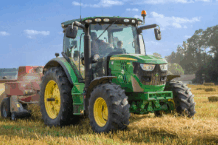Today’s News from the University of Kansas
Headlines
Researchers land $3.3M grant to test combined interventions
for students with autism spectrum disorder
LAWRENCE — University of Kansas researchers, in collaboration with the University of North Carolina-Chapel Hill, will work with high school students in both states to help students with autism spectrum disorder boost educational achievement and improve their transition to life after school. The five-year grant from the Institute of Education Sciences will combine the Self-Determined Learning Model of Instruction, known as SDLMI, and Peer Supports.
Kansas Public Radio cancels 2020 Big Band Christmas
LAWRENCE – Kansas Public Radio was set to hold its 12th annual Big Band Christmas on Dec. 12 at Liberty Hall. Due to concerns surrounding COVID-19, KPR has canceled this year’s event and plans to reschedule it for December 2021.
Full stories below.
———————————————————————–
Contact: Mike Krings, KU News Service, 785-864-8860, mkrings@ku.edu, @MikeKrings
Researchers land $3.3M grant to test combined interventions
for students with autism spectrum disorder
LAWRENCE — University of Kansas researchers, in collaboration with the University of North Carolina, have secured a new grant to test the combination of two interventions designed to help students with autism spectrum disorder boost educational achievement and improve their transition to life after school.
Karrie Shogren, director of the Kansas University Center on Developmental Disabilities, is the principal investigator on a five-year, $3.3 million grant from the Institute of Education Sciences. The project will combine the Self-Determined Learning Model of Instruction, known as SDLMI, and Peer Supports, two interventions that have proven successful in enabling students with disabilities to excel in high school and the transition to adulthood. The combination of the two interventions has never been tested with students with autism spectrum disorders. The project will work with students at high schools in Kansas and North Carolina.
Shogren has conducted research on SDLMI and self-determined learning methods for over a decade, building a body of research on how to enable students with disabilities to take active roles of their education by setting goals, learning to solve problems and making plans for achievement to improve their educational attainment and post-school transition outcomes. Peer Supports is an educational intervention that connects students with and without disabilities to promote engagement in general education classrooms, improve social interactions, and build and improve peer relationships. Both have been studied independently and shown to be effective.
“This project focuses specifically on adolescents with autism spectrum disorder who are taught in general education classrooms. Theirs is a group with a tremendous set of strengths but often struggles to achieve positive post-school outcomes,” Shogren said. “Each of these interventions targets different areas that are very important to students, and we want to examine how they complement each other and if their combination leads to more positive outcomes.”
The researchers will work with 36 high schools and about 430 students in the two states. The project will include schools that support at least 10 students with autism spectrum disorder in inclusive classroom settings in urban, suburban and rural schools. Schools will randomly be assigned to use either SDLMI alone, Peer Supports alone or a combination of both.
Brian Boyd, associate professor of applied behavioral science and director of Juniper Gardens Children’s Project in KU’s Life Span Institute, and Kara Hume of the University of North Carolina-Chapel Hill, are co-principal investigators. Hume and her team at UNC have focused on establishing evidence-based practices to support students with autism spectrum disorders, including the importance of peer relations for students, and will lead the Peer Supports aspect of the project.
“Each approach has shown impact on improving skills in certain areas, but there remain some challenges for these students as they navigate high school and beyond,” Hume said. “What we hope to learn through this project is whether combining the approaches can be more effective in improving outcomes while students are in high school and in their lives after high school.”
The first year of the project will include planning, establishing partner schools and training of teachers in using the interventions. Implementation in schools will begin in year two, continuing in years three, four and five, with evaluation of the interventions’ effectiveness and analysis of data in year five. Given the ongoing pandemic and challenges it presents to education, Shogren said the timing is advantageous as coaching and training and can be done remotely, if needed, and hopefully schools will be able to safely reopen fully for implementation in fall 2021.
“We look forward to partnering with participating schools to determine what implementation practices best meet their needs as well as promotes positive outcomes for adolescent youth with autism spectrum disorder,” Boyd said.
The research team will track the progress of students who take part in the three separate intervention conditions (SDLMI only, Peer Support only and SDLMI + Peer Support) over the course of the grant, creating the opportunity to observe if the effects of the intervention are sustained over time. If the combined interventions prove successful, the goal is to scale it for further national testing and use in schools across the country.
“Ultimately, what we care about the most is if this is sustainable and can creating lasting benefits for students throughout high school and beyond,” Shogren said. “Giving students ownership of their education and learning goals is powerful, and when you think about the average adolescent, they are much more engaged when they are interacting with their peers. That’s why we think the two interventions will be so powerful when combined.”
———————————————————————
The official university Twitter account has changed to @UnivOfKansas.
Refollow @KUNews for KU News Service stories, discoveries and experts.
————————————————————————
Contact: Bobbi Washechek, Kansas Public Radio, 785-864-7853, bwashechek@ku.edu, @KPRInfo
Kansas Public Radio cancels 2020 Big Band Christmas
LAWRENCE – Kansas Public Radio was set to hold its 12th annual Big Band Christmas on Dec. 12 at Liberty Hall, but due to concerns surrounding COVID-19, KPR has decided to cancel this year’s event.
A Big Band Christmas traditionally draws more than 500 people to enjoy a night of live jazz music, drinks and dancing. KPR plans to bring Big Band Christmas back in December 2021.
Follow KPR on Facebook, Instagram and Twitter to see announcements on various virtual events KPR will be holding for the foreseeable future.
————————————————————————
KU News Service
1450 Jayhawk Blvd.
Lawrence KS 66045
Phone: 785-864-3256
Fax: 785-864-3339
Erinn Barcomb-Peterson, director of news and media relations, ebp@ku.edu
Today’s News is a free service from the Office of Public Affairs
From the Office of Public Affairs | http://www.news.ku.edu



